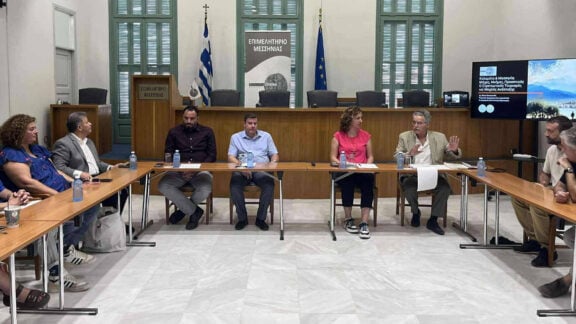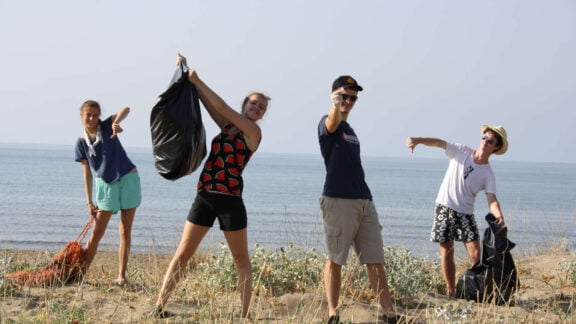Every 11 minutes someone in Australia experiences a stroke. In many cases, even if the stroke is survived, it may lead to a long-term disability altering the patient’s life and their family’s. Stroke is the leading cause of long-term disability in adults.
“The reality is that mortality or disability from a stroke can be avoided,” Professor Maria Kambanaros, a University of South Australia researcher told Neos Kosmos.
“If you can stop people from getting one, you’ve already serviced the public hospital, the person themselves and their families.”
In over 80 per cent of cases, a stroke is preventable, which is the reason she has embarked on a mission to educate as many Australians as possible on the signs and risks of a stroke.
For the past three years, the Greek Australian Professor has been volunteering as a StrokeSafe speaker with the Stroke Foundation. Through her community education work, she’s realised that far too many elderly Greek Australians are missing out on life-saving information, both about recognising a stroke and preventing one. The latest national data confirms this. Despite ongoing campaigns, Australians who speak a language other than English are significantly less likely to be aware of the F.A.S.T. signs (Face, Arm, Speech and Time) of stroke.
Message is lost in translation
The Stroke Foundation’s national awareness campaign relies on the acronym F.A.S.T. to help people quickly recognise the signs of stroke. It’s been translated into Greek, but with little impact.
“It means absolutely nothing in Greek because it can’t be used as a mnemonic,” Prof Kambanaros says.
“Public health messages need to be tailor-made for people’s languages and culture if we want to get the messages across.”
For older Greek migrants, the need is urgent. Many are reverting to their first language as they age.
“In Adelaide, and Melbourne, there’s a large ageing population that are now basically Greek speakers,” she says.
“They go to their Greek GP, they go to their Greek pharmacy. They don’t use English anymore.”
Time matters
The message is crucial, because when someone is having a stroke, every minute counts.
“It’s really important to ring an ambulance, because if you get medical attention immediately (within the first 3 hours) it’s possible that it will save your life or reduce the severity of the disability that you get.”
But too often, the symptoms are misinterpreted.
“They think they’ve either got food poisoning, or they’ve got a migraine, and they go and lie down, and that exacerbates the condition.
“It is so important to get this message out about the 3 symptoms of a stroke.”
The drooping face, inability to lift one or both arms, speech difficulties, are the three defining symptoms that will help differentiate a stroke from any other condition that a person might be experiencing.
For more than two decades, the Greek Australian Professor has been researching language breakdown in people who’ve had strokes or other neurological conditions. Before returning to Australia, she worked in Greece for the Ministry of Education and later at the Cyprus University of Technology, where she directed the Centre of Research on Neurological Communication Disorders & Rehabilitation.
In Cyprus, she ran a Greek Stroke Awareness Campaign and says she has the know-how to do something similar here in Australia, if she gets the funding.
Healthy aging is the goal
During her doctoral research Prof Kambanaros tested the language abilities of bilingual stroke survivors.
“I found that their Greek was better preserved than their English. That was one of the first studies of its kind in Australia at the time.”
She’s been publishing ever since, with a focus on stroke and aphasia, a communication disorder that often follows stroke.
“The idea is to have healthy aging. To ensure that people are getting the right information to keep themselves healthy,” said Prof Kambanaros.
In Melbourne and Adelaide, the infrastructure (community centres, church halls) already exists to launch a campaign to educate Greek-speaking elders not just on the symptoms of a stroke, but how to prevent one in the first place.
Ageing increases the risk of stroke, but it’s not the only factor.
Prof Kambanaros said that checking blood pressure at least once a year, for free at a pharmacy is important.
Another measure is to reduce salt intake by “avoiding processed foods”.
“Have regular exercise do not smoke, cut down on alcohol, and have your heart checked, because atrial fibrillation is another reason someone might have a stroke.
“These are all things people can do quite easily and most of them are free.”









